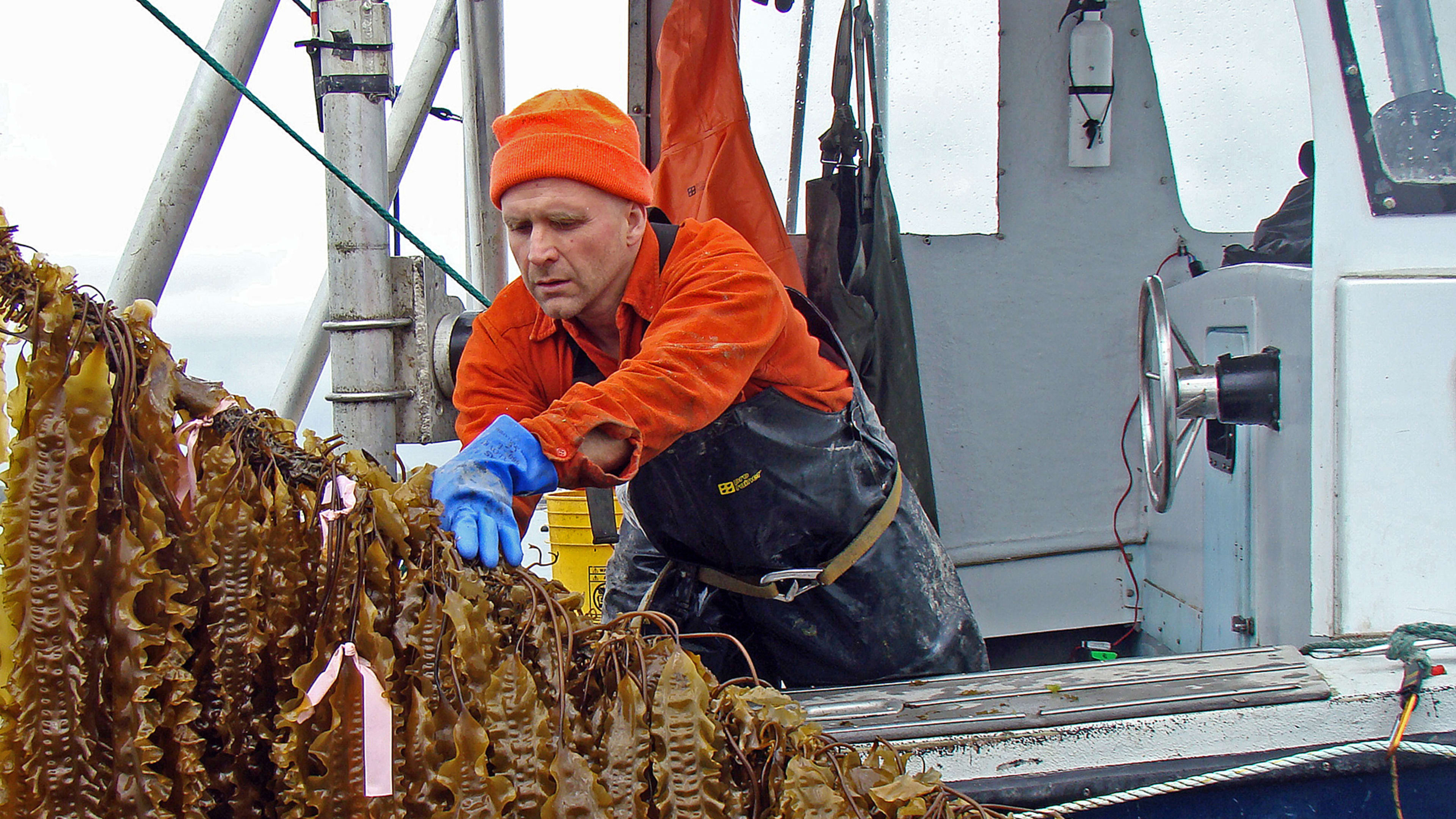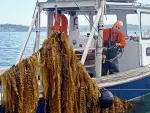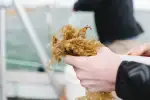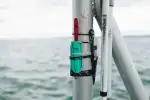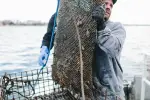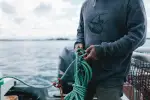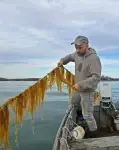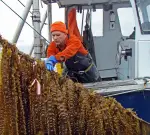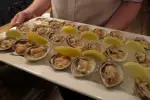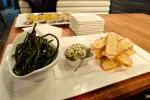When Bren Smith first started cultivating seaweed in the Long Island Sound, his friends “laughed him off the water.” “They said I was growing arugula at sea,” he says.
Now, after 15 years of experimentation, he’s showing the idea isn’t so stupid after all. Smith has set up “multi-species 3-D ocean farms” growing seaweed, scallops, mussels, clams, and oysters. And he’s developing a sustainable alternative for people who can’t rely on fishing any more.
Seaweed has been described as a “superfood”–and not only because the stuff is good for you when you eat it. Seaweed farms also help clean the water from pollution like carbon dioxide and nitrogen. They help with storm protection. And they provide a way for fishermen to do something other than fishing at sea: creating new forms of manmade coastal ecosystem–farms centered around seaweed.
Smith’s GreenWave project recently received a big endorsement in the shape of the $100,000 2015 Fuller Challenge Prize from the Buckminster Fuller Institute. The award celebrates the memory of a legendary American thinker, designer, and inventor, and Smith is tickled to be in the same company. “As a high school dropout, I would never have imagined that I would end up here and be honored this way,” he says. Smith dropped out of school at 14 to become a fisherman on the seas near Russia.
The Buckminster Fuller Institute said:
GreenWave’s integrated model shifts the practice of aquaculture from growing vulnerable monocultures to creating vibrant ecosystems, which produce higher yields. The infrastructure is simple: seaweed, scallops and mussels grow on floating ropes, stacked above oyster and clam cages below. From these crops ocean farmers can produce food, fertilizers, animal feeds, pharmaceuticals, cosmetics, biofuels and much more.
Smith grows 30 to 60 tons of seaweed a year, some of which he sells to restaurants in New York City. For example, Brooks Headley’s Superiority Burger in the East Village makes special kelp noodles with Smith’s produce. And Google is buying up Smith’s seafood to feed to its employees, and looking at other ways to work with Smith’s ecosystem idea.
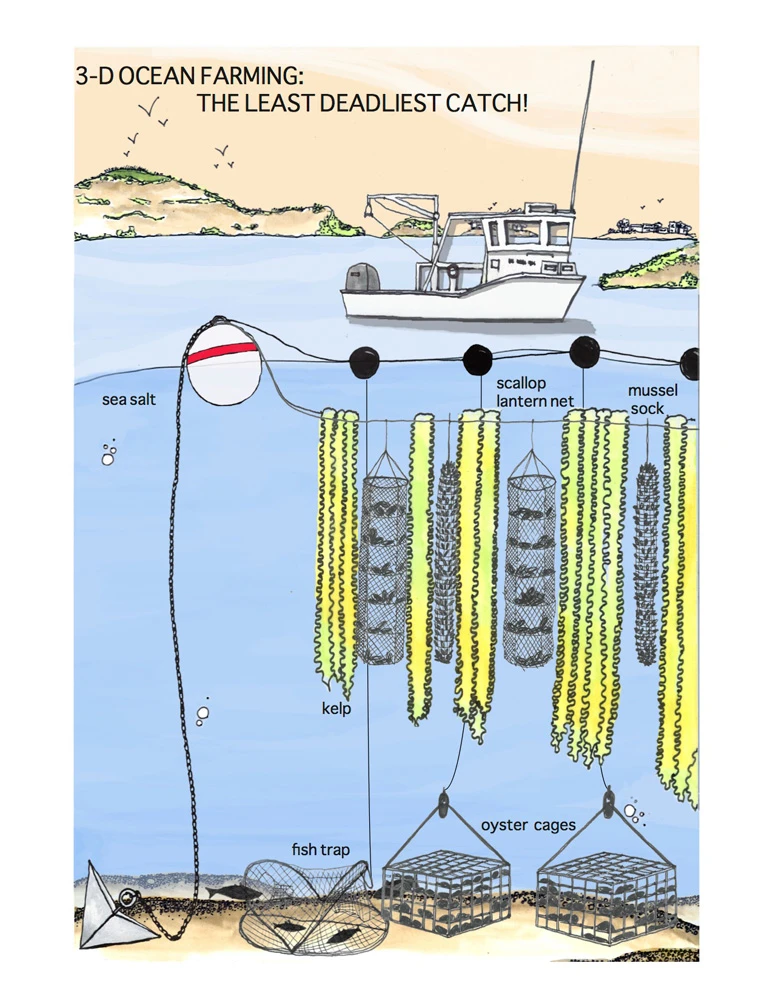
Smith himself wants to find new sea plants he can grow. “Kelp and nori is just the beginning. There are thousands of others: 250 types of kelp, sea lettuces. . . . Imagine being a chef and finding out that tomatoes and corn are all there, and you’ve never cooked with them?”
With the $100,000, Smith plans to set up 10 more people on his startup program. The deal is, he gives people free seed, two years of training and consulting, and he agrees to buy 80% of their product for five years at triple market rate. This should be enough to stabilize the farms and get people going. (As a side benefit, Patagonia is offering each of the startups free gear.)
Eventually, Smith wants his underwater ecosystems to be self-perpetuating so he doesn’t have to do all the work of developing the idea himself. “I want my farm to be just the start. I want hundreds of other ones. Then I can just disappear back onto my boat and other people can innovate.”
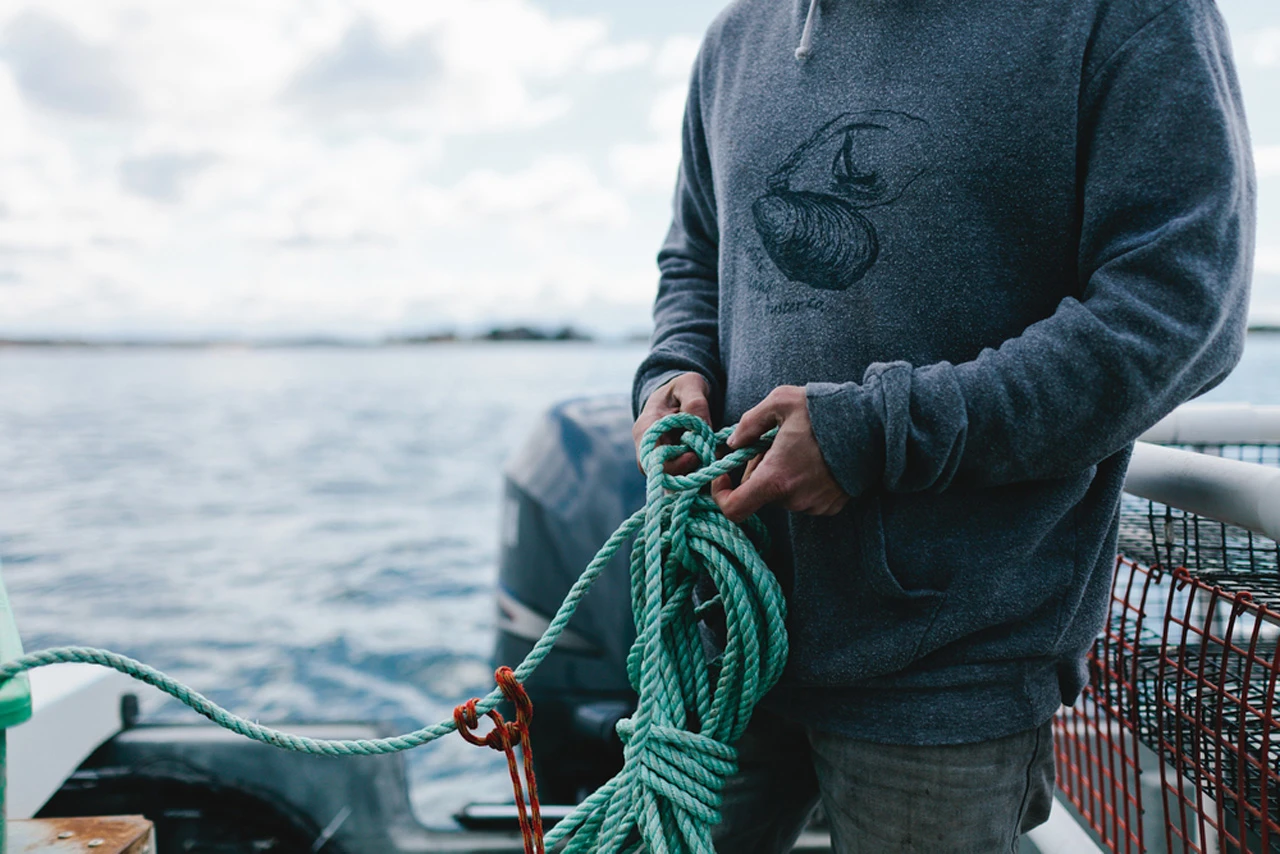
Seaweed faces a few obstacles, especially on the food side of things–not everyone is that keen. And there’s also the challenge of persuading burly fishermen to hang up their nets in favor of seaweed seeds and scallop lantern nets, though Smith doesn’t see any intrinsic reason not to change. “When I started to grow shellfish and seaweeds, it was really boring. I had to recalibrate my nervous system,” he says.
“We do lose some part of our soul as fishermen. We’re hunters. But you still have no boss, you spend your life on the water, you succeed and fail on your own terms. You can maintain that and still have that sense of pride that you’re feeding the country.”
Recognize your brand’s excellence by applying to this year’s Brands That Matter Awards before the early-rate deadline, May 3.
